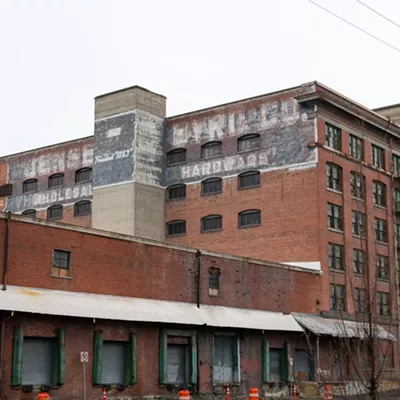
As federal and state education funding cuts loom, Washington State University has enacted preemptive measures to ensure that potential impact is as small as possible. Starting April 1, the university is pausing some salary increases and the hiring of nonessential faculty and staff. Additionally, WSU will prohibit any nonessential travel and training, reduce discretionary purchases, and renegotiate or end contracts. "As the path ahead requires fundamental adaptation, we know that some short-term measures ... can help us weather near-term challenges," a letter to faculty and staff from WSU leadership states. "What we had in the past is not necessarily our future. The landscape of higher education is evolving, and to thrive, we are going to have to shape our future together." For up-to-date information on how the university is responding to the pressures of the current financial landscape, visit news.wsu.edu/navigating-the-challeges-ahead. (COLTON RASANEN)
GARFIELD GALS
When Spokane Mayor Lisa Brown took office last year, she put the city on a new course to build a network of "scattered site" homeless shelters dispersed outside the downtown core that could provide more individualized care. On Tuesday, Jewels Helping Hands, Empire Health Foundation and the city of Spokane opened a new women-only scattered site shelter in Knox Presbyterian Church's gymnasium in the Emerson-Garfield neighborhood. The opening came a few weeks after Hope House announced it would stop providing about 100 emergency shelter beds for women and transition to providing 44 medical respite beds instead, starting this summer. The Knox women's shelter can initially help 10 women, Jewels Helping Hands Executive Director Julie Garcia says, until the plumbing is upgraded. She hopes that the shelter will be able to support full capacity, which is 30 people, by the middle of April. This is Jewels Helping Hands' fourth scattered site shelter, and the city's eighth. (ELIZA BILLINGHAM)
INDECENT EXPOSURE
Idaho Gov. Brad Little signed House Bill 270 into law, targeting public exposure of breasts and genitalia. The bill builds on current Idaho law that bans public indecent exposure, to include exposed developed female breasts, as well as surgically or hormonally altered female and male breasts. State Sen. Brian Lenney, R-Nampa, says the bill was inspired by the 2024 Canyon County Pride event, where he says people exposed themselves and residents complained about lewd activity. Displaying toys or other products resembling genitalia would also be a misdemeanor under the bill. Lenney says the bill doesn't target people with truck nuts attached to vehicles, or bachelorette party attire, because the law gives discretion to law enforcement. However, state Sen. Melissa Wintrow, D-Boise, says she verified with law enforcement that someone can report toys or items like truck nuts to law enforcement. State Sen. James Ruchti, D-Pocatello, says the previous indecent exposure statute worked, and the updates will affect sex stores as well as bachelorette parties where revelers wear necklaces displaying lewd images. "We are turning over to the prudest person in our community, the standard for our community," Ruchti says. "It's not our job under our state and federal constitution to tell them what to do." Through an emergency clause, the bill takes effect immediately. (VICTOR CORRAL MARTINEZ) ♦























